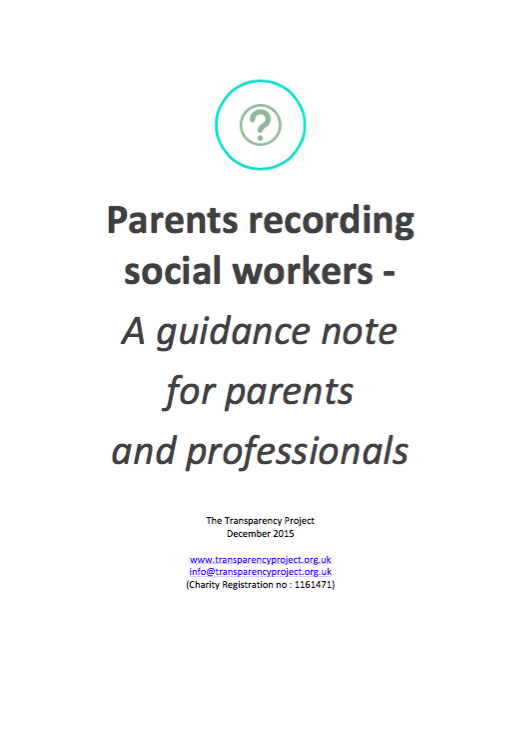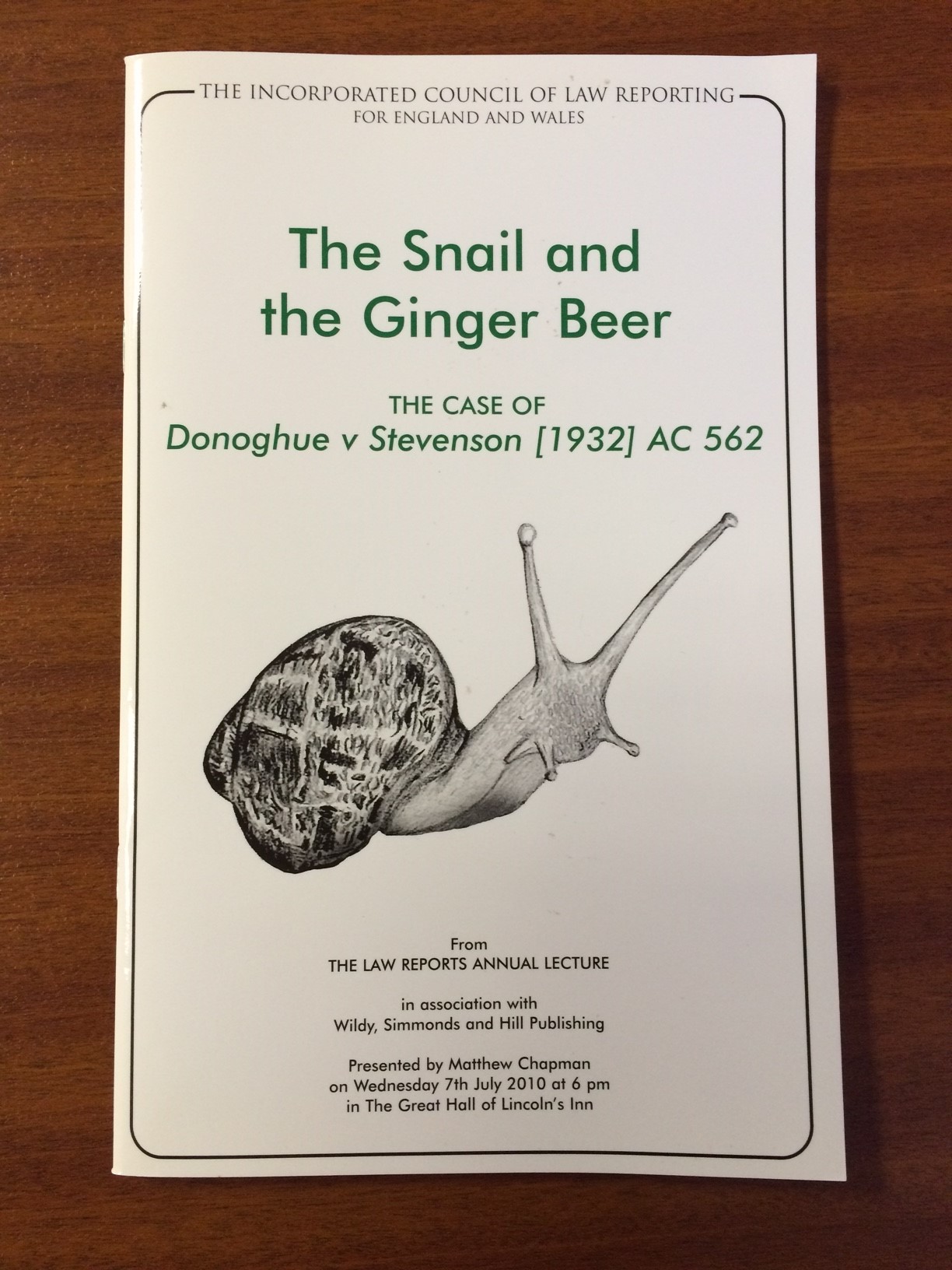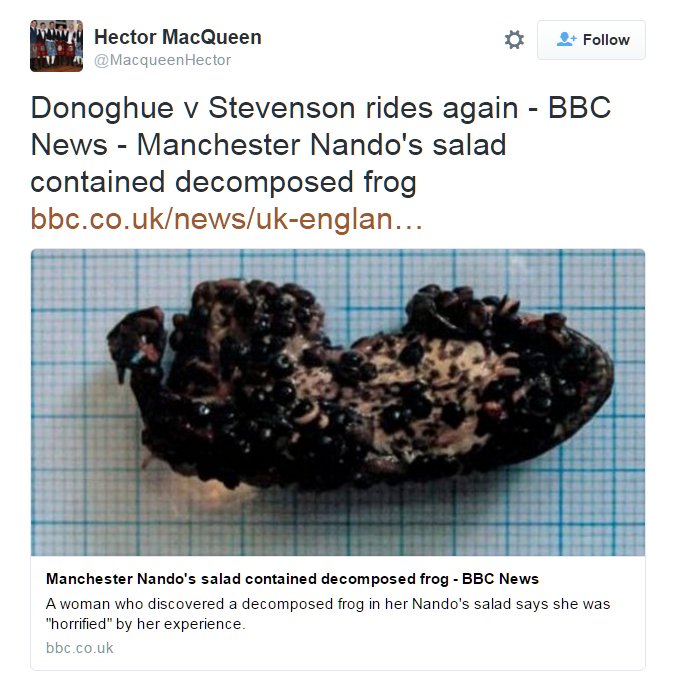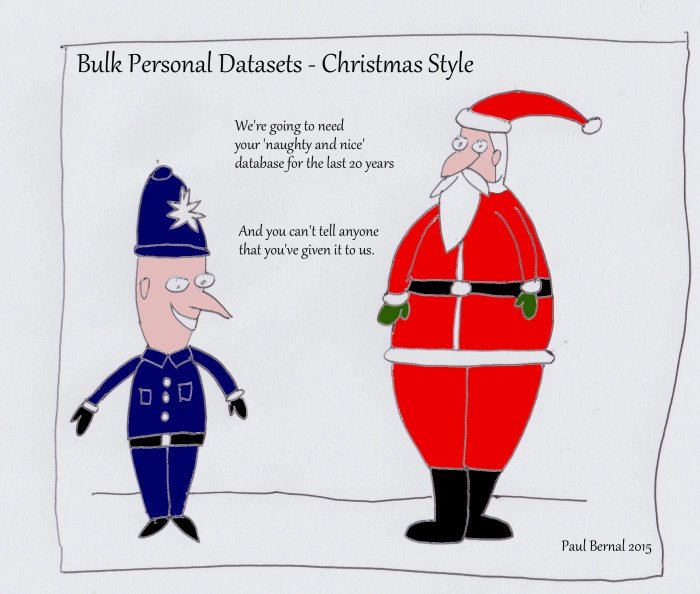Weekly Notes: legal news from ICLR – 18 December 2015
This week’s hoard of gifts under the Christmas tree includes a helpful document from the Transparency Project, a less than helpful form from the MoJ, a couple of proposals from the Law Commission and the sorry tale of a dead frog in a fresh salad (recalling a snail in a bottle). Plus Santa’s data preservation… Continue reading
This week’s hoard of gifts under the Christmas tree includes a helpful document from the Transparency Project, a less than helpful form from the MoJ, a couple of proposals from the Law Commission and the sorry tale of a dead frog in a fresh salad (recalling a snail in a bottle). Plus Santa’s data preservation duties under the IP Bill (via Paul Bernal).
Please also note that this is the last Weekly Notes this year, but we shall be reviewing some books and producing a grand survey of the year’s criminal case law over the holiday period.
Family law (1)

Guidance on recording of social worker meetings
On Thursday 17 December the Transparency Project officially launched its paper, Parents recording social workers: a guidance note for parents and professionals. The purpose of the Guidance is to help both parents and social workers to understand the possible legal and other implications of making recordings, as some parents wish to, of meetings with social workers. They may have various reasons for doing this: to gather evidence of prejudice or misconduct, for example, or simply as an aide-memoir or to help remember and understand the advice given in the meeting.
Discussing the matter first could avoid mutual suspicion and improve working relations. Moreover, many local authorities seemed to have no coherent policy on whether they regarded the practice as acceptable or (often for bogus reasons) unlawful, as was revealed in a survey conducted by way of a Freedom of Information request sent to all local authorities. The guidance is written in clear simple English to help both parents and social workers. It has been well received by parents’ groups and family law organisations.
The Transparency Project was founded in 2014 and achieved charitable status in April 2015. The Project aims to promote better understanding of the family justice system in England & Wales by providing accessible and balanced information, and through facilitating public discussions about the system. The Guidance on recording meetings is just one example of how it is contributing positively to the family justice system.
You can support the Transparency Project by becoming a Friend or donating to the charity.
Firearms
Law Commission final report
The Law Commission published its final report on Firearms on 16 December, confirming that
a number of pressing problems undermine the effectiveness of the law regulating the possession and acquisition of firearms
and making recommendations aimed at ensuring
First, … that the law maximises public safety and secondly, to
ensure that those who must both enforce and comply with the law know where they stand.”
Family Law (2)
Divorce: Form E fiasco
Thousands of couples who have settled their divorces in the last 20 months may have to re-open negotiations because a critical fault has been found in software used to calculate financial terms
The MOJ has a large number of forms on its system including Form E, which enables divorcing couples to calculate their financial assets and liabilities online. The fault was in the way the liabilities were deducted – or rather not deducted – from the total, meaning that anyone who used the form and did not check the figures would have arrived at the wrong sum. It has been like this since April last year, apparently.
Two points have been flagged up.
First, the error was discovered by someone who was not even a lawyer, but was a McKenzie Friend, ie an unqualified person providing assistance to a self-represented litigant. Moreover, as the Guardian reported the story, the MOJ were not exactly falling over themselves to thank Nicola Matheson-Durrant of the Family Law Clinic in Ascot, Berkshire for drawing the matter to their attention.
Secondly, a lot of lawyers do not actually use the MOJ form, but either do the calculation themselves or use third party software that can be relied upon to work properly. This may help explain why, as Matheson-Durrant pointed out, “not a single solicitor, barrister or judge in the whole of the UK had noticed this error”.
For a more detailed explanation and examples of the form itself, see Amy Sanders, on the Jordans Family Law website: Ministry of Justice Form E error
The MOJ issued a statement providing a contact email address on a page of the Gov.UK website. But there is no link to the relevant website and the form cannot be found using the completely useless (or “lucky dip”) search on Gov.UK. If you copy the name of the relevant website and paste it into google, then (and only then) can you find the blessed form. Sing hey-ho for digital transformation! And here it is (PDF):http://hmctsformfinder.justice.gov.uk/courtfinder/forms/form-e-eng.pdf
I tried using it and a VERY OBVIOUS fault presented itself (at page 19). No matter what figure you enter into the Liabilities (box D), it will not accept ANY figure and reverts automatically to zero. I would have thought anyone using the form would be alerted to its incompetence pretty immediately. So the idea that it has been fixed is, er, inaccurate to say the least.
Family Law (3)
Getting married – scoping paper
The Law Commission, having issued its final report on Firearms this week, also delivered a scoping paper on the subject of Getting Married, but we’re keeping the two items separated to avoid any risk of a shotgun wedding. (As it happens, they’re kept apart by an item about divorce, which is perhaps appropriate.)
Seriously, though, what more can the law do to hinder or help people getting married and why is the Law Commission getting involved? The problem, apparently, is that “Our law of marriage was designed in an for another age”. Although it allows for religious solemnisation, the options are limited, and don’t include solemnisation by some form of humanist ceremony, for example. The law hasn’t materially changed much since the Marriage Act of 1836, the more recent Act of 1949 merely consolidating earlier provisions. In short, it is out of date, complex and uncertain.
A reformed law of marriage should allow couples to get married in the way and in the location of their choice, in a way that feels meaningful to them, while protecting against abuses such as sham and forced marriages. So the scoping paper concludes that the Law Commission is well placed to develop a coherent modern law of marriage.
You can read more here
Changes to the marriage law in Scotland were proposed back in 2013, according to a report on the BBC website, which raised the prospect of “Jedi Weddings” and ceremonies performed by other quasi-religious groups, such as the Flat Earth Society (who seem to think the north pole is the centre of a disc-shaped world). The changes, if made, would have been included in the Marriage and Civil Partnership (Scotland) Act 2014. However, this appears to be mainly an amending and adapting statute, rather than creating the new approach envisaged by the Law Commission.
Product Liability
Snail fails and frog salads
 These days, with think-outside-the-box chefs like Heston Blumenthal in the offing, saying “waiter, there’s a snail in my porridge” will only earn you the contemptuous chortles of well heeled gastronomes. But there was a time when a gastropod was not so high on a gastronome’s wishlist, indeed was likely to cause gastro-enteritis, as was alleged in the famous case of Donoghue v Stevenson [1932] AC 562 – better known as “the one about the decomposing snail in the ginger beer”.
These days, with think-outside-the-box chefs like Heston Blumenthal in the offing, saying “waiter, there’s a snail in my porridge” will only earn you the contemptuous chortles of well heeled gastronomes. But there was a time when a gastropod was not so high on a gastronome’s wishlist, indeed was likely to cause gastro-enteritis, as was alleged in the famous case of Donoghue v Stevenson [1932] AC 562 – better known as “the one about the decomposing snail in the ginger beer”.
ICLR have just reissued their 2010 special edition of the case, under the title The Snail and the Ginger Beer, which is available free to personal callers at the ICLR bookshop at 119 Chancery Lane.
The case of Donoghue v Stevenson is also featured in The Law Reports 1865-2015 Anniversary Edition as one of the Top Fifteen cases voted for by readers to mark ICLR’s 150th Anniversary this year. At £30 this handsome hardback book makes a perfect seasonal gift for the legal historian and common law precedent-lover.
With perfect timing, to highlight the lasting importance of Donoghue v Stevenson to the law of product liability, the BBC reported this week on the case of an unhappy diner finding a decomposed frog in a salad at Nando’s, the well known chicken dinner restaurant chain, in Manchester. Ms Rudd, from Stockport,
“said she had ‘eaten most of’ her meal … before she encountered the amphibian at the bottom of her bowl”,
the BBC reported, apparently unaware of the uncanny similarity of the case to the famous precedent. For, just as the ginger beer containing the decomposing snail had been supplied by a third party and not the cafe where it was consumed, so the salad at Nando’s had been supplied by a third party, the Lancashire firm Salads to Go.
I’m grateful to Hector MacQueen (who prefers the parallel Scots citation, 1932 SC (HL) 31) for flagging up this case on Twitter.
Parish news
Barristers’ Directories
Thomson Reuters, who own and operate Westlaw, Lawtel and Practical Law Company (PLC), have announced the re-launch of Legal Hub, a directory for barristers, their chambers, and expert witnesses. As you’d expect, with all the TR development budget and manpower behind it, it looks both slick and simple, but it is surprisingly underpopulated with information when you actually use it. Perhaps that depends on whether the barrister or chambers listed have paid extra to have more information supplied.
For a rather more detailed, but less slickly operated directory, we favour the Havers “Find-a-barrister” site. It seems to have a lot more detail about the barristers listed, including cases they’ve been involved in and books or articles published. However, the search is clunky and it could do with a makeover. And it probably isn’t as up to date as it might be.
We’ve listed these and other directories on our Links page, so feel free to have a browse. There’s lots of useful info on our website, as well as this blog. Next year we’ll be giving the website a bit of a makeover. If you have any good ideas or feedback, do let us know. You can find the address via the Contact page.
Dates and deadlines
Voices for Justice – Save Legal Aid
On 6 January 2016 the Justice Alliance is hosting a rally event from 6.30 to 8.30 pm at Conway Hall, Red Lion Sq in London.
Speakers include Shami Chakrabarti (Director of Liberty); Helena Kennedy QC; Marcia Rigg; Deborah Coles (Co-director of Inquest); Emma Scott (Director off Rights of Women); Helen Steel; Jeremy Corbyn MP; Peter Kavanagh (Unite the Union) Awate Suleiman; and Laura Janes (Howard League for Penal Reform).
Details: Eventbrite
Launch of Proof magazine
On 18 January 2016 the first issue of Proof magazine, published by the Justice Gap, is being launched. Titled Justice in a Time of Moral Panic, it features essays by various authors including David Jessel, David Rose, Alison Saunders and Bob Woffinden, and is illustrated by Isobel Williams.
The magazine costs £15 in hard copy, and there will also be an e-book edition. For details see The Justice Gap.

